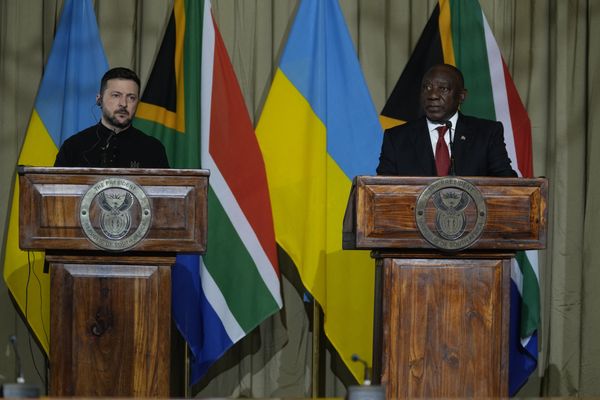
The head of the SVR, Russia’s foreign intelligence service, has claimed that the US is planning to interfere in the re-election campaign of Vladimir Putin, saying Russian graduates of US education programmes could be mobilised to serve as a potential “fifth column”.
Sergei Naryshkin, the Russian spymaster, said that the US planned to “activate” Russians graduates of the Fulbright, Summer Work Travel, high-school Flex and other exchange programmes to “replace the non-systemic opposition that fled en masse to the west and become the core element of the fifth column”.
Russia has largely banned its education exchange programmes with the US since relations soured in the early 2010s, but Naryshkin’s remarks as carried by an SVR press release indicate for the first time that former Russian exchange students, who number more than 80,000, could be seen as a potential security threat.
“It is obvious that on the eve of the presidential elections in Russia, Americans are seizing on the slightest opportunity to ‘shake up’ the internal political situation in our country,” said Naryshkin. “Apparently, the time is not far off when the state department will take control of the pupils of Anglo-American kindergartens and schools.”
Observers have said that the security services are engaged in “spymania” as academics and other researchers tied with foreign governments have been swept up in espionage investigations.
At least three scientists involved in Russia’s hypersonic missiles programme have been accused of treason, prompting protests from colleagues and fears that past connections with foreign institutions could attract the attention of the security services.
The exchange programmes were once seen as a sign of prestige, and alumni include prominent pro-Kremlin figures such as Margarita Simonyan, the head of state-funded RT (formerly known as Russia Today), who spent time as a high school exchange student in the small town of Bristol, New Hampshire in 1995.
Since Russia launched its full-scale invasion of Ukraine, Russian courts have halted the work of the Anglo-American school of Moscow, established to serve the children of foreign diplomats in the late 1940s, and also banned a longstanding liberal arts partnership between St Petersburg State University and Bard College in New York.
The US last year accused the Kremlin of seeking to harass the children of diplomats after it declared the Anglo-American school a “foreign agent”.
“For 74 years the United States and Russia recognised our mutual interest in ensuring both sides’ dependent children were able to access educational opportunities without unnecessary disruption or harassment,” the state department said in a statement. “The Russian government’s recent actions directly undermined this principle.”
Tens of thousands of Russians opposed to Russia’s invasion of Ukraine, many involved in opposition politics, independent journalism and NGO work have fled abroad since Putin announced the offensive in February 2022.
Since then, the search for enemies of the state in Russia has continued apace, with the Kremlin suggesting the west would try to interfere with Putin’s re-election, widely viewed as a foregone conclusion in a managed contest.
Naryshkin’s remarks came after an explosion in treason cases in Russia in 2023, with the independent legal NGO First Department saying that the trend was heavily driven by the war in Ukraine and the security services’ desire to show that it was successfully carrying out its counterintelligence function.
“I believe that more than 100 treason cases have been filed this year and their number continues to grow,” said Yevgeny Smirnov, a lawyer for First Department. “The ‘threshold of sensitivity’ for the security services is rapidly decreasing and the distribution of news about Ukraine, the transfer of several hundred roubles, or the desire to leave the country began to be recognised as treason. Provocations deserve special attention, because this is a signal that the FSB is [fulfilling quotas] – [the number of] people sent to camps for treason.”







